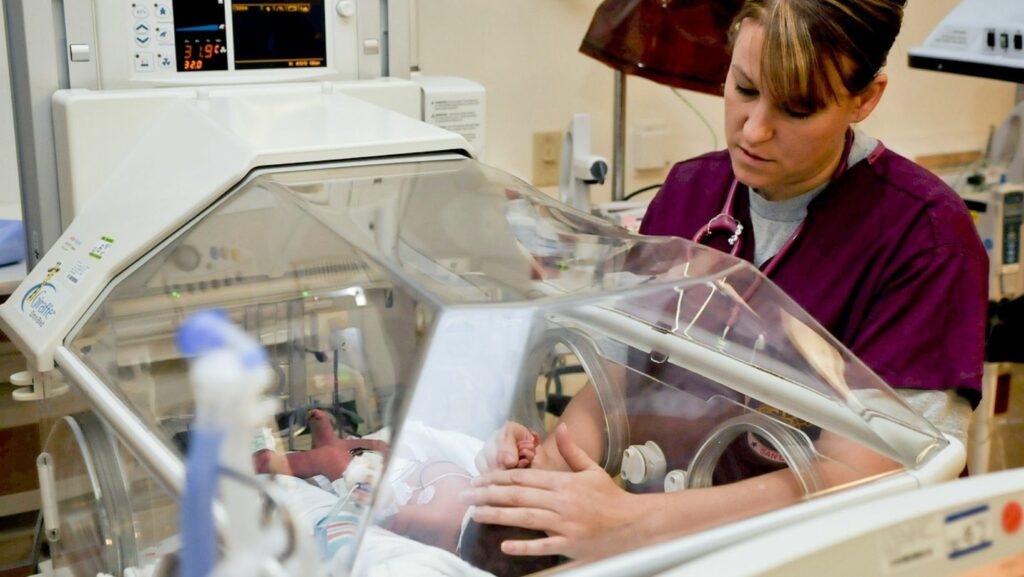Community health plays a key role in the well-being of individuals and families, yet many communities face significant barriers to accessing care. From economic constraints to geographical isolation, these challenges often leave vulnerable populations without essential medical services.
Consider the example of Ghana in West Africa, which has several gaps in primary healthcare facilities. According to a Wiley Online Library study, three high-level categories of gaps were identified that were relevant to community members. These were safety-quality gaps, equipment gaps, and infrastructural gaps.
Family nurse practitioners (FNPs) have emerged as key players in addressing these issues. They offer solutions that make healthcare more accessible, equitable, and comprehensive.
Expanding Access to Primary Care
Increasing access to primary care is one of the most important ways FNPs close disparities in community health. In many underserved areas, particularly rural or economically disadvantaged regions, the shortage of primary care physicians leaves residents with limited options.
Family nurse practitioners are qualified to make medical diagnoses, write prescriptions, and create treatment programs. They are able to offer care that is on par with that of a doctor. This can help solve the physician shortage issue looming over several countries worldwide.
People usually think that problems like physician shortages are only faced by developing countries. However, that’s not true, as even developed countries like Canada are facing these issues. An article from The Conversation states that around 4,000 doctors are currently required to address the shortage. Approximately six million Canadians lack a family physician as a result of this problem. The same is true with the USA, where a shortage of 64,000 physicians was expected by the end of 2024.
Family nurse practitioner’s ability to diagnose diseases and create treatment plans allows them to fill these significant gaps. FNPs frequently work in community-serving environments, including school-based health centers, free clinics, and federally recognized health centers. These facilities provide essential care to populations who might otherwise go without. This ensures that basic health needs are met and chronic conditions are managed effectively.
How do FNPs collaborate with other healthcare providers to expand access?
FNPs collaborate closely with doctors, specialists, and community health teams to ensure integrated care. They act as patients’ first point of contact, directing them to the right resources and promoting interdisciplinary dialogue to expedite treatment regimens.
Building Trust Through Community Engagement
Trust deeply influences community health, and the entire world is currently facing a crisis in this area. While modern medicine is producing “miracles” every day, many people lack trust in its safety. This lack of trust can be caused by numerous factors, such as:
- Identity politics
- The rise of populism
- Anti-elitism
For instance, many people across countries were hesitant to get vaccinated for COVID-19, even in 2022. A Nature Journal study concludes that among 23,000 respondents across 23 countries, around 79.1% were willing to take the shots. This was a 5.2% increase compared to 2021. However, there were still over 20% of people who didn’t trust the vaccinations even after two years.
Trust in public health can be built by consistently offering quality care. There should also be a clear and shared vision along with values created on the basis of ethical standards. Moreover, it also requires a commitment to cater to healthcare professionals’ well-being. While there are many such factors that can help build trust, consistent quality care tops them all.
FNPs are uniquely positioned to build meaningful relationships with patients. FNPs frequently stress a comprehensive and patient-centered approach, in contrast to typical healthcare approaches that could place more emphasis on volume than quality. This enables them to spend more time with people, getting to know their unique requirements and addressing issues that go beyond physical health.
For instance, FNPs frequently engage in outreach initiatives to educate the public about preventive care, immunizations, and healthy lifestyle choices. They build trust and motivate people to proactively seek care by taking part in neighborhood events or collaborating with neighborhood organizations. In addition to improving individual health outcomes, this relationship-building enhances community health as a whole.
What strategies do FNPs use to engage communities that are hesitant to seek care?
To establish rapport with hesitant populations, FNPs use individualized education, local partnerships, and outreach initiatives. They promote trust and involvement in healthcare by addressing issues with compassion and transparency. Another thing that FNPs do is build strong relationships with their patients by spending time with them.
The Importance of Quality Family Nurse Practitioner Education
The right education is the key to ensuring consistent quality care, which can be the foundation for building trust in community healthcare. The more educated and qualified the nurse practitioners are, the more people will believe in their treatment. For instance, while graduation is enough to practice nursing, having a master’s or post-master’s degree can position nurses to be leaders.
People tend to listen more carefully, believe what such leaders say, and follow their treatment plans. This can help nurses to bridge any gaps seamlessly and ensure that primary healthcare is accessible to everyone. It can also pave the way to narrow physician shortage by enabling FNPs to offer the same quality of care as doctors.
The good thing is that governments across the world are recognizing the problem of physician shortage. Therefore, they are even making programs to ensure nurses get good quality education. With the advent of technology, this has become even easier, as FNPs can now continue their study with online programs. Someone with a master’s degree can enroll in online post-master FNP programs and continue their education.
As the Carson-Newman University notes, the learning materials of these courses are hosted on the cloud. Thus, they can be accessed from anywhere and at any time by nurses who have enrolled in the program. This allows even working FNPs to pursue higher education and emerge as leaders in community health.
Enhancing Preventive Care
Preventive care is a cornerstone of community health, and family nurse practitioners excel in promoting wellness and preventing disease. Through routine screenings, immunizations, and health education, FNPs help individuals identify and address potential health issues before they become serious. This proactive approach reduces healthcare costs and improves long-term outcomes for both individuals and communities.
FNPs also play an essential role in addressing public health crises. During outbreaks of infectious diseases or natural disasters, FNPs often serve on the front lines, providing care and education to affected populations. Their training in both clinical and public health settings makes them invaluable in these situations, ensuring that communities receive timely and effective care.
Addressing Health Inequities
Health inequities remain a persistent challenge in many communities, with disparities rooted in factors like income, education, and systemic bias. Even occupation can be a factor influencing health inequities in the UK and the USA.
A BMC Journal study shows that around 53.7% of Americans identified that professionals live longer than routine workers. This is primarily because of their income, which results in primary healthcare inequalities. The sad thing is that Americans are less likely to be aware of these occupation-based inequalities.
Family nurse practitioners significantly contribute to the reduction of these disparities by offering care that is culturally sensitive. In order to provide care that is both relevant and accessible, this approach acknowledges and respects the patients’ varied backgrounds, values, and beliefs.
In addition to cultural competency, FNPs frequently advocate for policies that promote health equity. Whether lobbying or collaborating with local governments, FNPs work to address the structural barriers that prevent equitable access to care.
How do FNPs stay informed about systemic biases and inequities?
Family nurse practitioners must stay current on social determinants of health to address disparities in patient care and affect systemic changes. To achieve this, they often work with advocacy organizations, do research, and participate in ongoing education.
Family nurse practitioners are revolutionizing community health by removing the obstacles that keep people from getting care. FNPs are bridging gaps and building healthier, more equitable communities through their commitment to growing primary care and building trust. They ensure that no one is left behind in pursuing health and well-being because of their innovative spirit and holistic approach.



